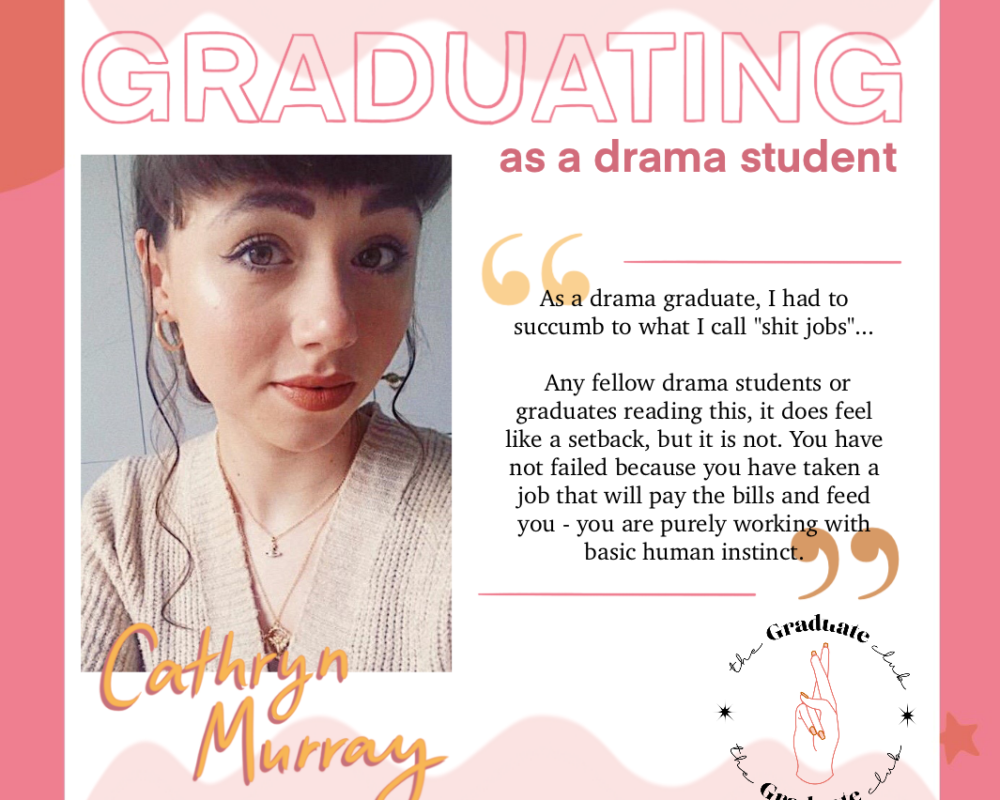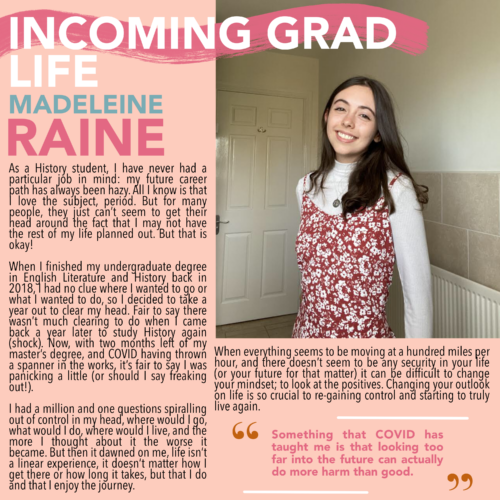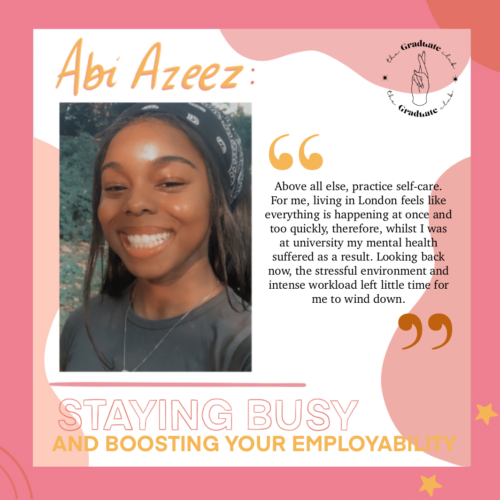Recently I started a podcast with one of my closest friends. We reflected on our graduation day and raised a glass to the class of 2020. Entering the working world as a drama graduate that does not have a lot of time for the arts is a daunting task, a task I have been on for well over a year now. My course was amazing; I loved university, and in all honesty, I did not want it to end. Fourteen years of my life were spent in education with a plan to follow every day and suddenly, those plans, and routines were gone.
The first thing that I found difficult in adult life was regaining that sense of routine. I struggled for months balancing two different jobs and trying to find a routine that made sure my life did not revolve around work. As a drama graduate, I had to succumb to what I call “shit jobs”. Now to anyone reading this that I have worked with or for, please do not take that to heart. I had some amazing memories at these jobs and made some great friends, but they were jobs to fill the time. They were a means to an end; a way of making money to get me to where I wanted to be. Any fellow drama students or graduates reading this, it does feel like a setback, but it is not. You have not failed because you have taken a job that will pay the bills and feed you – you are purely working with basic human instinct.
Something I had to understand during the early months of being a graduate was that the arts jobs do not always come flowing in, but sometimes that is how life works. I spent six and a bit months working in jobs that did not cater to the arts, but what I did learn was how to talk to people. Being able to talk to people, particularly in the arts field, is crucial. This is alongside feeling comfortable and being able to show your true personality whilst retaining a level of professionalism – it is key. Although those jobs were not what I necessarily wanted to be doing, they enhanced my skills and provided me with talents that have helped me in future positions within the arts field. Therefore, take something positive from every negative.
After those six and a bit months, I finally landed my first arts job. Funnily enough, it was with my university that I loved so much. This job was not in a field that I ever thought that I would enter into; I never thought I was cut out to be a facilitator and work with young and vulnerable people, but I did it. This position was a huge learning curve for me and a real godsend in the long run. I learnt how to communicate effectively with industry professionals, how to develop and deliver a workshop to a room full of people hanging on my every word, and how to maintain a website – something that then led me to having my own personal blog.
Due to COVID- 19, the work spectrum in the arts is becoming more and more limited every day. There is more demand for practitioners that have experience working with young people and are willing to help develop their talents in the arts to keep the industry moving. Although my previous job was not exactly in the field that I dream of being in, it has possibly equipped me with skills that will allow me to continue my work in the arts industry.
I am not an agony aunt, but here is my little slither of advice for anyone who has recently graduated or are in the early stages of their career: you have a whole life ahead of you. There is a huge pressure on young people, particularly in the arts industry, to know exactly what you want to do because jobs are sparse and there could be 1000 other applicants who would kill for that position. You are working things out and that is just as valid. Just make sure you go into every role whole-heartedly and show that you were the right fit for that opportunity. You are allowed to change your mind and look for other work, and when a job makes you feel like you have out-grown it or that it does not fit you anymore, know that it is okay to move on. Take the “shit jobs” and keep looking for the good ones, keep a roof over your head, have a life outside of work, and something that is the perfect fit will come your way. You do not need to know your career path at the age of 21, you have plenty of time to work that out.
Keep trawling arts jobs!





Leave a Comment